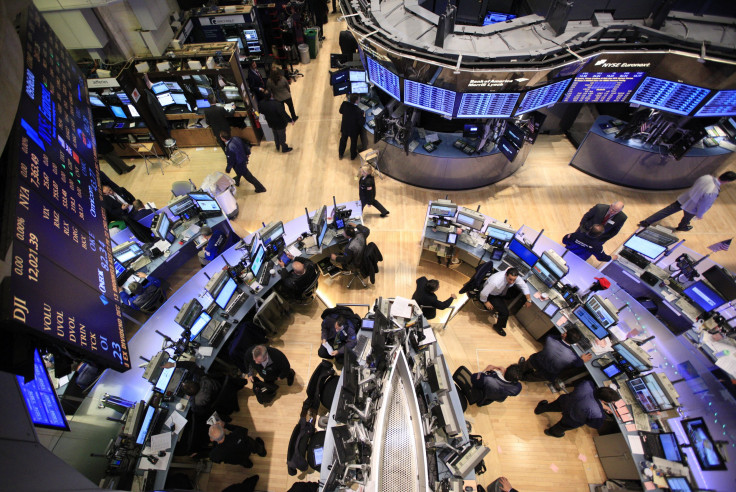US Stock Futures Point To Lower Open Ahead Of Consumer Sentiment, Concerns Over Syrian Conflict, US Debt Ceiling

U.S. stock futures point to a significantly lower opening to markets on Tuesday ahead of the release of consumer sentiment data, and media reports citing Treasury Secretary Jacob Lew as saying that the country could hit the debt ceiling in mid-October -- a month ahead of predictions.
In addition, speculation about the possibility of U.S. military action against Syria is also expected to dampen investor sentiment as oil futures shot up on Tuesday, while the possibility of a September tapering of the Federal Reserve’s bond-buying program continues to loom large.
Futures on the Dow Jones Industrial Average were trading down 0.39 percent, while futures on the Standard & Poor's 500 Index were down 0.54 percent and those on the Nasdaq 100 Index were down 0.53 percent.
According media reports, Lew, on Monday, wrote House Speaker John Boehner stating that the government would be unable to pay its bills beyond the middle of October unless the debt ceiling is increased by Congress.
“Operating the government with no borrowing authority, and with only the cash on hand on a given day, would place the U.S. in an unacceptable position,” Lew said, according to a MarketWatch report.
“A cash balance of approximately $50 billion would be insufficient to cover net expenditures for an extended period of time,” he said, but added that it was impossible to pinpoint when the cash balance would reach zero, he said in the letter.
Economists had expected the federal government's funds to last at least until mid-November. Meanwhile, concerns that the central bank could begin scaling down its $85 billion-a-month bond-buying program in September continues to worry the markets.
The political crisis in Syria and a possible military intervention by the U.S. affected markets around the world, as an escalation in the conflict could hit the supply of oil from the Middle East. Crude oil for October delivery rose 0.94 percent to trade at $106.92 a barrel, on Tuesday.
Investors are also likely to focus on the Conference Board‘s Consumer Confidence survey to be reported at 10 a.m. EDT. The survey, which measures the level of consumer confidence in economic activity, is expected to decline to 79 points in August, from 80.3 recorded in the previous month.
In Europe and Asia, most markets plunged lower on Tuesday, after reports of a possible military intervention by the U.S. in Syria.
The Stoxx Europe 600 index traded down 1.13 percent, the U.K.’s FTSE 100 index was down 0.58 percent and France's CAC-40 was trading down 1.35 percent.
Germany's DAX-30 was down 1.45 percent, despite an upbeat reading on the German Ifo Business Climate index in August. The index rose to 107.5, up from a July reading of 106.2 and slightly above the 107.0 estimated by analysts polled by Reuters, data released by the Ifo Institute for Economic Research showed, on Tuesday.
In Asia, Japan’s Nikkei ended down 0.69 percent, while Australia’s S&P/ASX 200 ended up 0.11 percent. In China, the Shanghai Composite index ended up 0.34 percent while Hong Kong’s Hang Seng Index closed down 0.59 percent. South Korea’s KOSPI Composite index closed down 0.11 percent.
India’s BSE Sensex ended down 3.18 percent, losing more than 590 points on Tuesday, after the rupee hit a fresh record low of 66.07 against the dollar in intraday trading before recovering marginally to trade at 65.75, late on Tuesday afternoon.
© Copyright IBTimes 2024. All rights reserved.






















